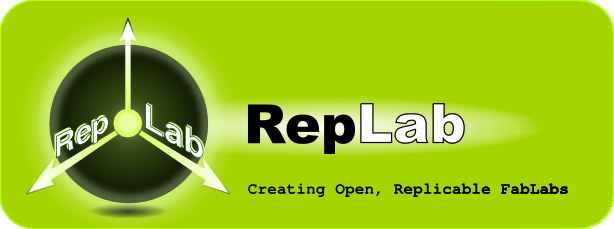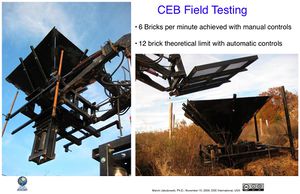H Plus Summit Slides: Difference between revisions
| Line 52: | Line 52: | ||
=Slide 9: Economy= | =Slide 9: Economy= | ||
What's the economy? Digital fabrication, neosubsistence. Produce if you like. Let an automated tractor do your agriculture, or a robot milk your goats. Time requirement - we're doing an experiment that shows 12 hours of time per person per year for 12 people. The rest is harvest and enjoying local food. You can go to the restaurant, too. We do trade, but we also know how to produce everything. | |||
=Slide 10: Who are the competitors?= | |||
Our competition is the mainstream economy. Most people favor their 9 to 5s. another competitor is Seasteading. However, we like to do it on land - as autonomous production means autonomous community - and it's cheaper than at sea. We gather a few friends, live happily ever after. | |||
=Slide 11= | |||
This is not easy. Most people don't believe this is possible. MOst don't believe they could be makers. Most don't understand that all wealth comes from the ground. | |||
=Looking for LifeTime Investors= | |||
=Slide 9= | =Slide 9= | ||
Revision as of 19:28, 22 November 2009
Marcin will be presenting this 5 minute presentation at the Humanity Plus Summit.
The flavor is high-tech neosubsistence.
Slide 1- Cover
How to Build the World's First, Replicable, Post-Scarcity Resilient Community By Marcin Jakubowski, Ph.D. Presented at the H+ Summit, Irvine, Californa December 5-6
Slide 2
Many are proposing post scarcity as the way to go. Here is an experiment in practice. High tech neosubsistence - reinvent the wheel by opensourcing the wheel - add modern touch to old stuff.
Imagine if you took all that society has learned to date, and apply it?
Slide 3 - 6 - survival: energy, materials, housing, food, technology
Let's start with land. You might want some clean energy - say from the sun.
It boils down to energy - do we have it? Yes, the sun is the source of all power. The USA use approaches 1000 GW (4kW per person) these days. NASA scientists can tell us that this power can be generated from an area 60 miles on each side. This is about .1% of the area of the USA. Next.
Slide 4
If we have energy, then we can have materials. Let's turn dirt into advanced civilization.
1. Take clay, and you can smelt aluminum. This is aka advanced civilization.
2. Take sand and you have silicon. This is aka digital age.
It's happening fast.
Slide 5
For technology - here's my favorite example. You can build RepRap - the OS 3d printer - for 300 in parts. It would cost you $10k for a commercial version.
Slide 6
You have seen notions of cost reduction. Yes. Factor of 30 for RepRap. We have shown similar for CEB press- $2500 in materials. The next competitor is $45000 for a 10 bpm machine, we think we can do 12, and initial tests showed 9.
Well, we do have 6 million people born per month, so we're 'thriving' like field mice in a population explosion.
Slide 7
Next, move to RepLab - the open source fab lab. You may have heard of the fab lab - the lab scale microfactory where they claim you can make just about anything.

Slide 8
As technology drops in size, and information flows increase - the inevitable is technological recursion where anyone can make anything anywhere. You can create a locus of advanced civilization - on a 30 acre farm. That's our experiment.
Slide 9: Economy
What's the economy? Digital fabrication, neosubsistence. Produce if you like. Let an automated tractor do your agriculture, or a robot milk your goats. Time requirement - we're doing an experiment that shows 12 hours of time per person per year for 12 people. The rest is harvest and enjoying local food. You can go to the restaurant, too. We do trade, but we also know how to produce everything.
Slide 10: Who are the competitors?
Our competition is the mainstream economy. Most people favor their 9 to 5s. another competitor is Seasteading. However, we like to do it on land - as autonomous production means autonomous community - and it's cheaper than at sea. We gather a few friends, live happily ever after.
Slide 11
This is not easy. Most people don't believe this is possible. MOst don't believe they could be makers. Most don't understand that all wealth comes from the ground.
